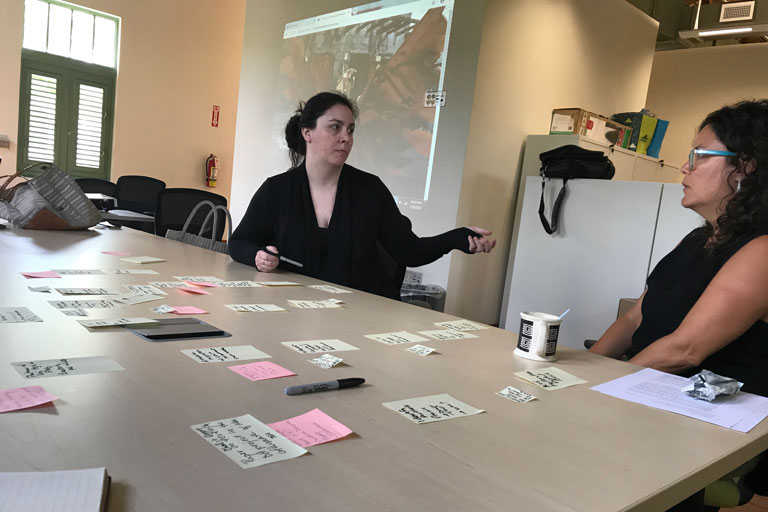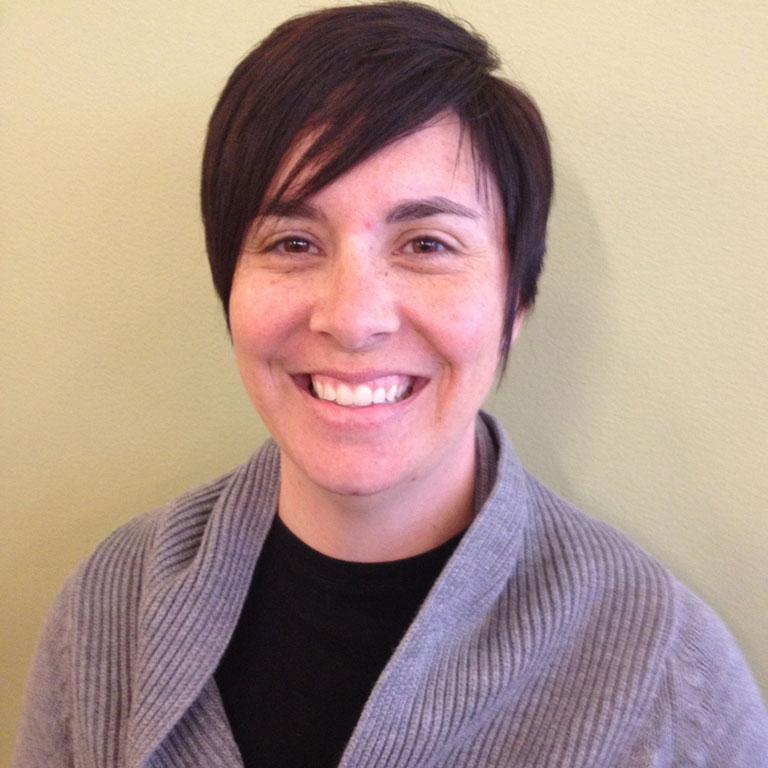December 2020
While the Internet serves as a tremendous resource with information available on virtually any topic, people may have a hard time determining if what they read online is truthful and accurate. In the context of historical events, and especially with historically underrepresented groups, researchers say it is vital that information be told in an honest and respectful way.
That is a big focus of IUPUI’s Jennifer Guiliano’s work. In Fall 2021, Guiliano will travel to the University of Guelph in Canada as the Fulbright Canada Research Chair in Digital Humanities. There, she will explore how Canadian researchers are telling the stories of Indigenous people through linked data on the Internet – knowledge she hopes will be used to help Native communities in the United States tell their own stories using similar approaches.
“As a historian, my concern is always that there are misinterpretations and stereotypes of Native communities that circulate,” said Guiliano, an associate professor of history in the IU School of Liberal Arts at IUPUI and adjunct associate professor of both American Indian programs and American Studies. “I want to be able to better advise Indigenous communities about sharing their own interpretations of their history, so people are not only learning about it from the side of non-Native individuals, archives, and governments who own documents and histories created by colonizers.”
One way of helping bring tribal community members into the conversation is through linked open data, a method of providing context and connections to individual pieces of information on the Internet. It takes materials and information from websites, social media, libraries and more and makes it all “talk” to each other so a person can follow “breadcrumbs” to other pieces of related information. Not only does this allow people to build confidence in knowing information is correct, Guiliano says, it also helps combat the spread of misinformation.
“Linked open data is a way for us to take the chaos of the Internet and make sense of it in terms of identifying information and knowing it’s historically and contemporarily legitimate,” Guiliano said. “But with Native communities, so many of the existing U.S. government materials were created and collected in the process of settling and colonizing the country, so we need to think through what it means to encounter that information through the lens of genocide and violence.”
In Canada, Guiliano will join researchers working on a country-wide strategy for exploring digital methods of publishing and linking data on the Internet through the Linked Infrastructure for Networked Cultural Scholarship (LINCS) project. Its goal is to convert large datasets into an organized, interconnected, machine-processable set of resources of cultural research. Not only does it connect pieces of information together, Guiliano said it also identifies the relationship between the pieces of information. Guiliano is hoping to discover ways American researchers can utilize strategies developed by a group focused on Indigenous cultural heritage even without any specific legal obligations. She plans to publish in an article upon completion of the program comparing and contrasting Canadian and U.S. approaches.
Much of her career has been spent elevating and recovering stories so society can have a better understanding of the challenges Native communities face now. In fact, she will take over a decade of experience in active research in digital humanities, Native American and Indigenous studies, and digital history with her when she completes her four-month residency next year.
“This process is about understanding how to be a better researcher and community member to support Native communities,” Guiliano said. “It’s important to find ways to tell stories that honor Native communities and the sacrifices they made and really challenge some of the perceptions that exist about them. This experience will help me do that.”
The Fulbright program is the United States government’s flagship international educational exchange program and is designed to build lasting connections between the people of the United States and the people of other countries.



